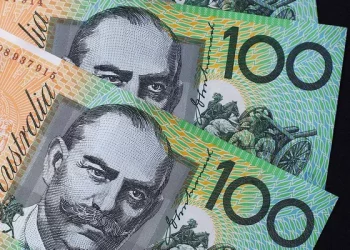Currency exchange rates play a vital role in global commerce, tourism, investment, and international trade. They determine how much one country’s currency is worth in terms of another and fluctuate based on several economic and political factors. For travelers, investors, and international businesses, understanding exchange rates is essential. In this article, we will explore how the value of 25,000 Thai Baht translates to U.S. Dollars, while also diving into the mechanics of exchange rate systems and what influences them.
Understanding the Thai Baht and the U.S. Dollar
The Thai Baht (THB) is the official currency of Thailand and is widely used across Southeast Asia for trade and tourism. The U.S. Dollar (USD), on the other hand, is not only the official currency of the United States but also serves as the world’s primary reserve currency. Exchange rates between THB and USD reflect broader economic interactions between Thailand and the United States.
The U.S. Dollar is considered a strong and stable currency, often used as a benchmark for global currency comparisons. The Thai Baht, while stable in its own right, can be more susceptible to fluctuations due to its reliance on tourism, exports, and regional political factors.
What is the Current Exchange Rate?
As of the most recent update, the exchange rate stands at approximately 1 Thai Baht = 0.0285 U.S. Dollars. This rate can vary slightly depending on the source—whether it’s a bank, an online exchange platform, or a money transfer service. Given this rate, converting 25,000 Thai Baht into U.S. Dollars would yield approximately:
25,000 THB x 0.0285 USD/THB = 712.50 USD
It is important to remember that exchange rates change frequently. These fluctuations are often small on a day-to-day basis but can be more pronounced over weeks or months due to macroeconomic events.
Factors Influencing Exchange Rates
Several factors influence the THB/USD exchange rate:
- Interest Rates: Central banks in both countries may raise or lower interest rates to control inflation and stabilize their economies. Higher interest rates in the U.S., for instance, attract investors seeking higher returns, thereby increasing demand for the dollar.
- Economic Performance: The overall economic health of each nation significantly affects their currency value. A robust economy usually leads to a stronger currency.
- Political Stability: Political uncertainty in Thailand or the U.S. can lead to currency depreciation due to reduced investor confidence.
- Inflation Rates: Lower inflation in the U.S. compared to Thailand can make the dollar stronger.
- Trade Balance: Countries with trade surpluses typically have stronger currencies than those with deficits.
Real-Life Scenarios and Use Cases
Understanding how 25,000 Thai Baht translates to U.S. Dollars can be useful in various real-life situations:
- Tourism: If you’re planning a trip to the U.S. from Thailand, knowing the exchange rate helps in budgeting your travel expenses.
- Online Shopping: Thai consumers purchasing goods from U.S.-based websites will benefit from knowing the accurate exchange rate.
- Education: Thai students studying in the U.S. need to convert Baht to Dollars for tuition, housing, and daily expenses.
- Remittances: Thai expatriates working in the U.S. may send money back home, requiring a good understanding of the conversion rate.
How to Get the Best Exchange Rate
To maximize the value of your 25,000 Thai Baht, consider these tips:
- Compare Providers: Use multiple platforms like banks, online currency converters, and forex bureaus to compare rates.
- Avoid Airport Exchanges: Exchange services at airports often have poor rates and higher fees.
- Use Digital Platforms: Apps like Wise, Revolut, and PayPal often offer competitive rates with low transfer fees.
- Monitor Market Trends: Timing your exchange when the Baht is strong against the Dollar can yield better returns.
Historical Exchange Rate Trends
To better understand the current value of 25,000 Thai Baht in Dollars, it helps to look at historical exchange rates. For example:
- In 2018, the exchange rate was around 1 THB = 0.031 USD, making 25,000 THB worth approximately $775.
- In 2020, due to the global pandemic, the rate dropped to around 0.032 USD.
- In 2023, the rate averaged around 0.028 USD.
This historical context illustrates how geopolitical and economic conditions can significantly impact currency value over time.
The Role of Central Banks
Central banks, such as the Bank of Thailand and the U.S. Federal Reserve, play crucial roles in determining exchange rate dynamics. Their monetary policies influence inflation, interest rates, and liquidity—all key factors in currency valuation.
The Bank of Thailand may intervene in forex markets to stabilize the Baht if it becomes too volatile. Similarly, the Federal Reserve uses tools like interest rate adjustments and bond purchasing to manage the dollar’s strength. These actions impact how much 25,000 THB will be worth in USD.
Currency Exchange Methods
There are various ways to exchange Thai Baht into U.S. Dollars:
- Banks: Reliable but may charge higher fees and offer slightly less favorable rates.
- Currency Exchange Kiosks: Convenient but often come with higher spreads.
- Online Transfer Services: Platforms like Wise or OFX offer better rates and low service charges.
- Mobile Banking Apps: Some modern banking apps allow direct currency exchange at competitive rates.
When converting 25,000 THB, each method can result in a slightly different amount received in dollars depending on the fees and exchange margins applied.
Currency Conversion Calculator
A currency conversion calculator can be a handy tool to find real-time conversion values. Here is a simple example of how you might calculate it manually:
- Determine the current exchange rate (e.g., 0.0285 USD per THB).
- Multiply the amount in Baht: 25,000 x 0.0285 = 712.50 USD.
However, always cross-check using online calculators that update rates frequently for the most accurate conversion.
The Impact of Exchange Rate on Economy
The exchange rate between THB and USD doesn’t only affect travelers and businesses—it also has broader economic implications:
- Exports and Imports: A weaker Baht makes Thai exports cheaper and more competitive in the U.S. market, while imports become more expensive.
- Inflation Control: A strong or weak Baht can influence domestic inflation by affecting the cost of imported goods.
- Foreign Investment: Exchange rate stability attracts foreign direct investment into Thailand.
Tips for Travelers
If you’re a tourist converting 25,000 Thai Baht into U.S. Dollars, here are some helpful tips:
- Prepaid Travel Cards: These cards offer locked-in exchange rates and added security.
- Notify Your Bank: Let your bank know you’ll be using your card abroad to avoid blocks.
- Keep Some Cash: While cards are convenient, some situations still require cash.
Travelers should also check if there are any foreign transaction fees when using their Thai-issued cards in the U.S.
Exchange Rate Volatility and Risk Management
Businesses and investors exposed to international currencies often face risks due to exchange rate volatility. Hedging strategies, such as forward contracts or options, are used to mitigate these risks.
If a Thai exporter is expecting payment in U.S. Dollars in a few months, they might hedge to lock in the current rate to avoid losses due to potential weakening of the dollar. Individuals converting 25,000 THB may not need such strategies, but it’s useful to understand how large entities manage exchange rate risks.
Conclusion
Converting 25,000 Thai Baht into U.S. Dollars requires an understanding of more than just the numbers. By appreciating the economic factors that influence exchange rates, and by using practical tools and strategies, individuals and businesses can make informed financial decisions. The world of currency exchange is dynamic, and keeping up-to-date with trends and forecasts is essential for maximizing value.
Whether you’re a traveler planning a holiday, a student studying abroad, or a businessperson engaged in cross-border trade, knowledge of exchange rates can empower you to make smarter, more cost-effective choices.
Related Topics:

























